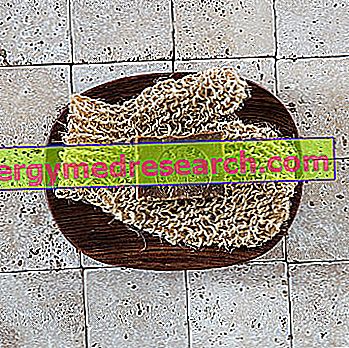PALUDRINE ® is a drug based on Proguanyl hydrochloride
THERAPEUTIC GROUP: Antimalarials - biguanides
IndicationsAction mechanismStudies and clinical effectiveness Usage and dosage instructionsWarnings Pregnancy and lactationInteractionsContraindicationsUndesirable effects
Indications PALUDRINE ® - Proguanil hydrochloride
PALUDRINE ® is used, generally in association with chloroquine, but sometimes on its own, for malaria prophylaxis.
Mechanism of action PALUDRINE ® - Proguanil hydrochloride
PALUDRINE ® is a medicinal product used in the prevention of malignant malaria caused by Plasmodium Falciparum.
The therapeutic activity is due to the metabolic characteristics of Proguanile, which once taken, is metabolized by the cytochrome p450 enzyme in cycloguanil, in which it acts as an inhibitor substrate of the enzyme dihydrofolate reductase, thus blocking the synthesis of folic acid, which is fundamental for active replication cells.
In particular, the lack of folic acid significantly limits the formation of schizonts, key elements of the exo-erythrocytic cycle and initiators of the erythrocyte form, responsible then for the classic symptomatology, and for the closure of the life cycle of the parasite.
The prophylactic efficacy of Proguanile is often compromised by the simultaneous appearance of pharmacological resistance mechanisms, implemented by Plasmodium through continuous mutations of the gene encoding the dihydrofolate reductase.
It is precisely for this reason therefore that the combination with other drugs becomes necessary, useful in limiting the haematogenous spread of the parasite.
Studies carried out and clinical efficacy
THE PRESCRIPTION OF ANTIMALARICI
J Travel Med. 2012 Oct; 19 (6): 357-60.
Interesting study that evaluates the prescriptions of antimalarial drugs in a time interval of 4 years. Proguanil, generally in association with drugs such as atovaquone, still remains one of the most prescribed drugs in malaria prevention.
PREVENTIVE STRATEGIES FOR MALARIA
PLoS One. 2012; 7 (8): e42284.
Important study in the management of malaria treatment and prevention in endemic areas such as Malawi. More precisely, the use of drugs such as atovaquone and proguanil over time have reduced the frequency of chloroquine-resistant plasmodia, thus justifying a reintroduction of this active ingredient in the face of the emergence of new mechanisms of resistance to drugs such as Proguanil.
TOLERABILITY OF THE PROGUANIL
Infect Chemother. 2013 Feb; 19 (1): 20-3.
Work demonstrating that the association between atovaquone and proguanil is generally effective and better tolerated than mefloquine in Japanese travelers.
Method of use and dosage
PALUDRINE ®
Proguanyl hydrochloride 100 mg tablets
The prophylactic scheme for malaria should be defined by the physician based on international protocols for the prevention of protozoal diseases.
The type of scheme, considering also the possible association with other drugs, will be defined on the basis of the patient's physiopathological characteristics and the degree of malaria endemic in the host territory.
Preventive protocols generally require a prolonged pharmacological treatment that begins a few days before departure to run out several weeks after returning home.
In order to optimize the pharmacokinetic properties of Proguanile it is recommended to take the drug on a full stomach, with water and preferably always at the same time.
Warnings PALUDRINE ® - Proguanil hydrochloride
PALUDRINE ® therapy must necessarily be preceded by a careful medical check designed to assess the possible presence of conditions incompatible with Proguanil-based therapy.
Particular caution should in fact be reserved for elderly patients or those suffering from renal liver disease, given the pharmacokinetic properties of Proguanile, which require both intense hepatic metabolism and subsequent renal elimination.
During therapy with PALUDRINE ® it is essential to carefully follow all the indications provided by your doctor, remembering that this drug is only suitable for the prevention of malaria and not for the treatment of acute episodes.
Along with drug therapy, it would also be advisable to apply simple hygienic rules to limit the risk of stinging the malaria vector, thus preventing the risk of infection upstream.
PREGNANCY AND BREASTFEEDING
PALUDRINE ® is generally contraindicated during pregnancy and in the subsequent period of breastfeeding due to the absence of work able to fully characterize the safety profile of the drug for fetal and infant health.
The possible use of this drug, linked to inevitable needs, should be constantly supervised by your gynecologist.
Interactions
In order to maximize the prophylactic effectiveness of Proguangile, limiting the occurrence of serious side effects as much as possible, it would be appropriate for the patient on PALUDRINE ® therapy to avoid the simultaneous intake of:
- Trisilicate magnesium-based drugs, given the reduced systemic absorption of the active ingredient;
- Oral anticoagulants, for the enhancement of anticoagulant activity.
Contraindications PALUDRINE ® - Proguanil hydrochloride
PALUDRINE ® is contraindicated in patients who are hypersensitive to the active ingredient or to one of its excipients rather than in patients with severe liver and kidney diseases as well as gastroduodenal ulcer.
Undesirable effects - Side effects
The administration of Proguanile could determine the appearance of gastro-enteric reactions with cramps, diarrhea, constipation, mouth ulcers, stomatitis and only rarely more serious reactions due to hypersensitivity to the drug.
Note
PALUDRINE ® is a prescription-only drug.



